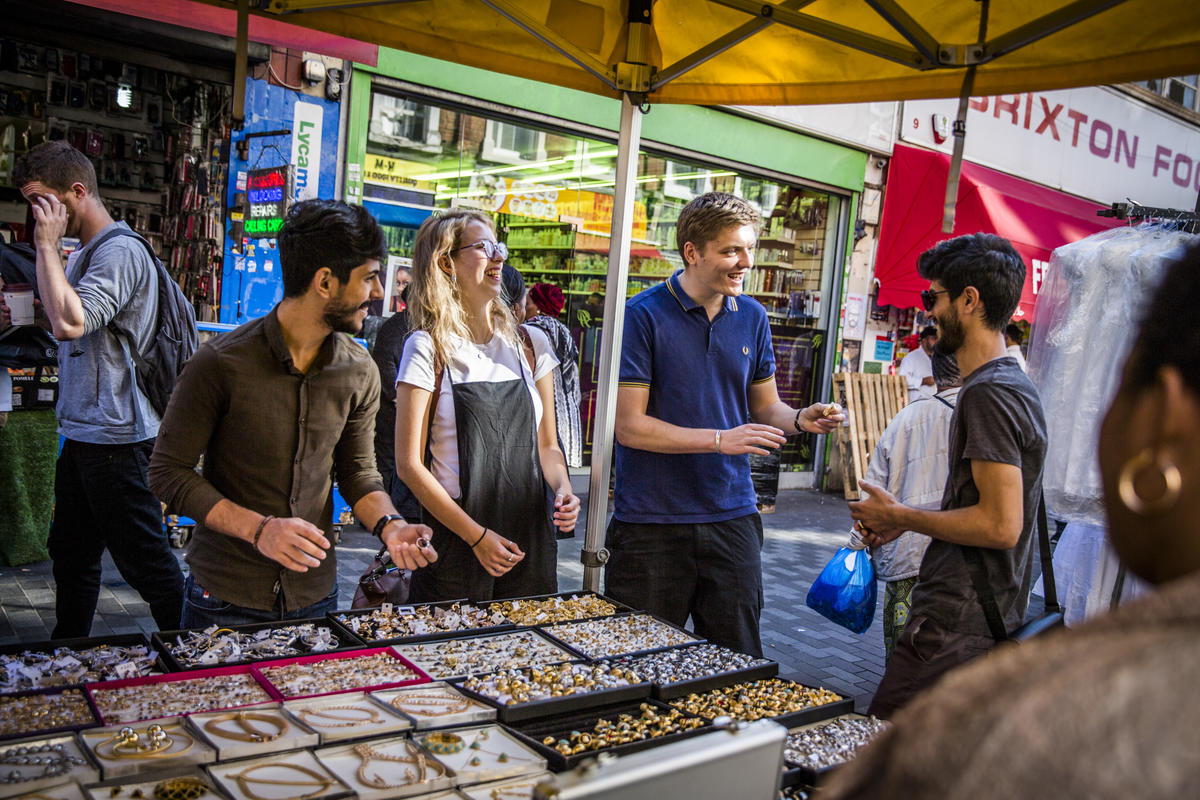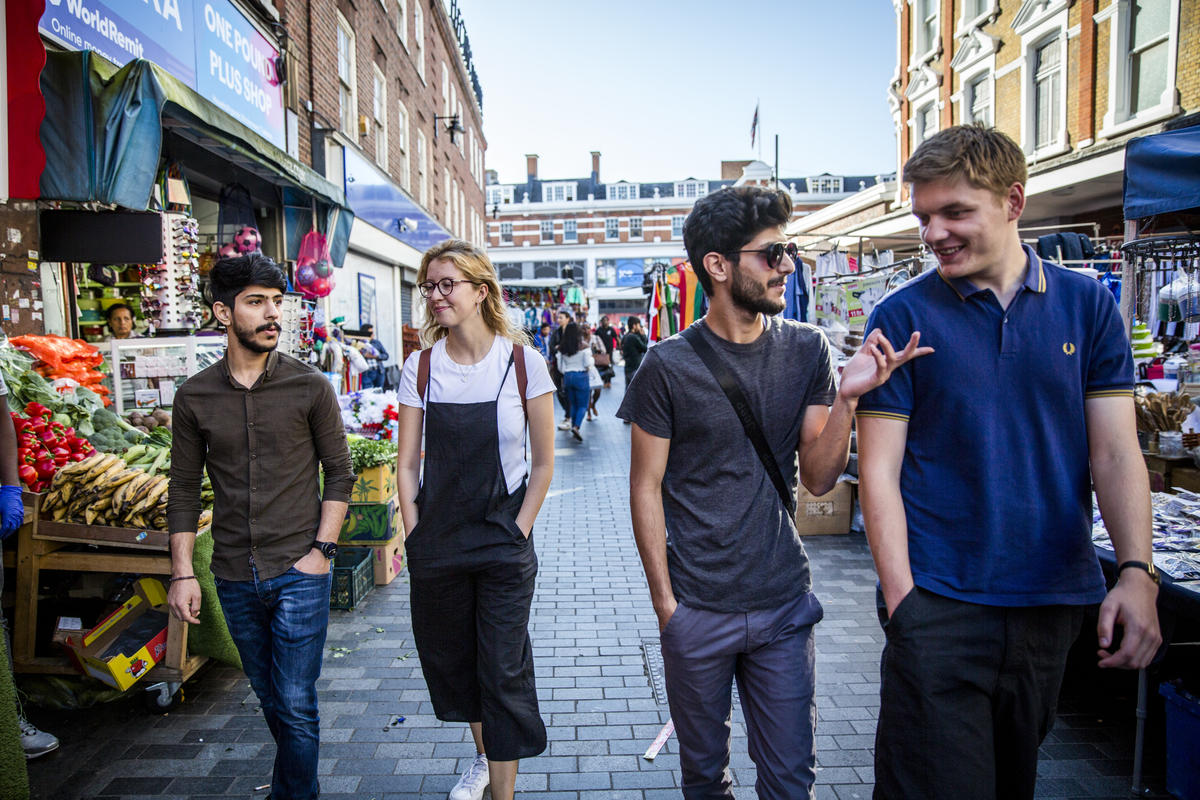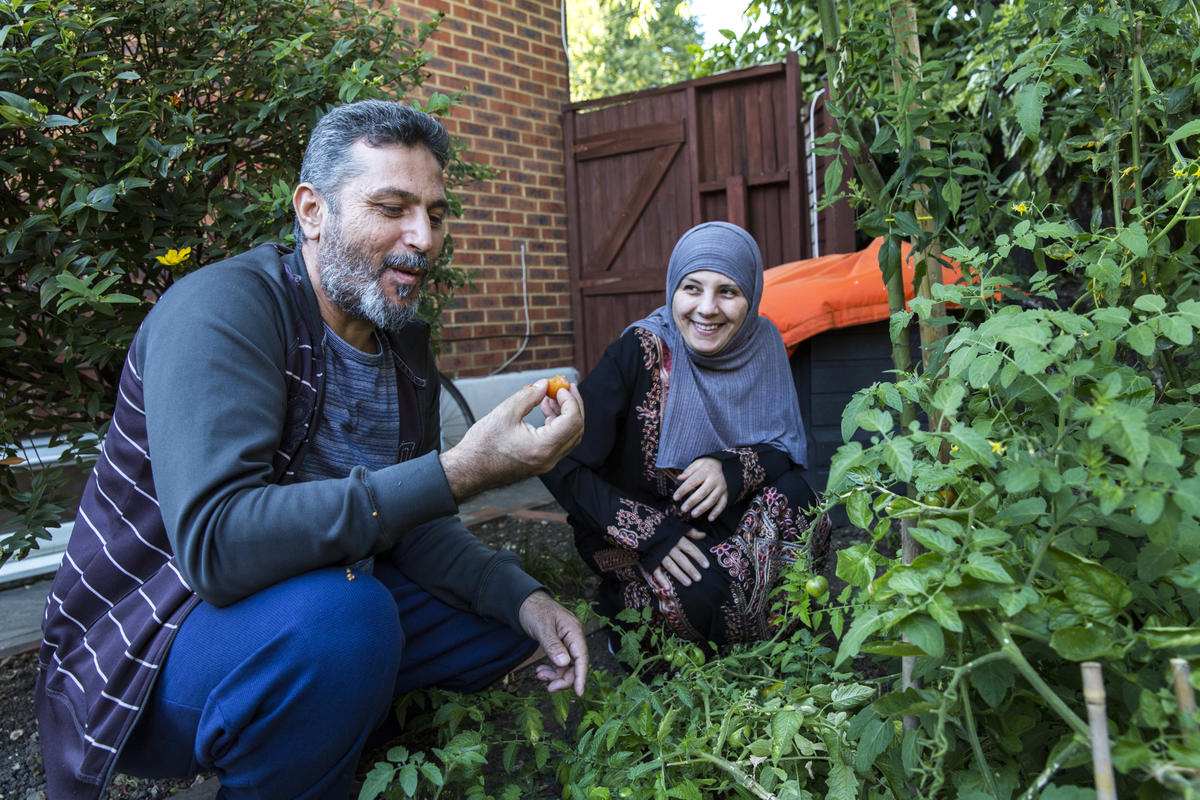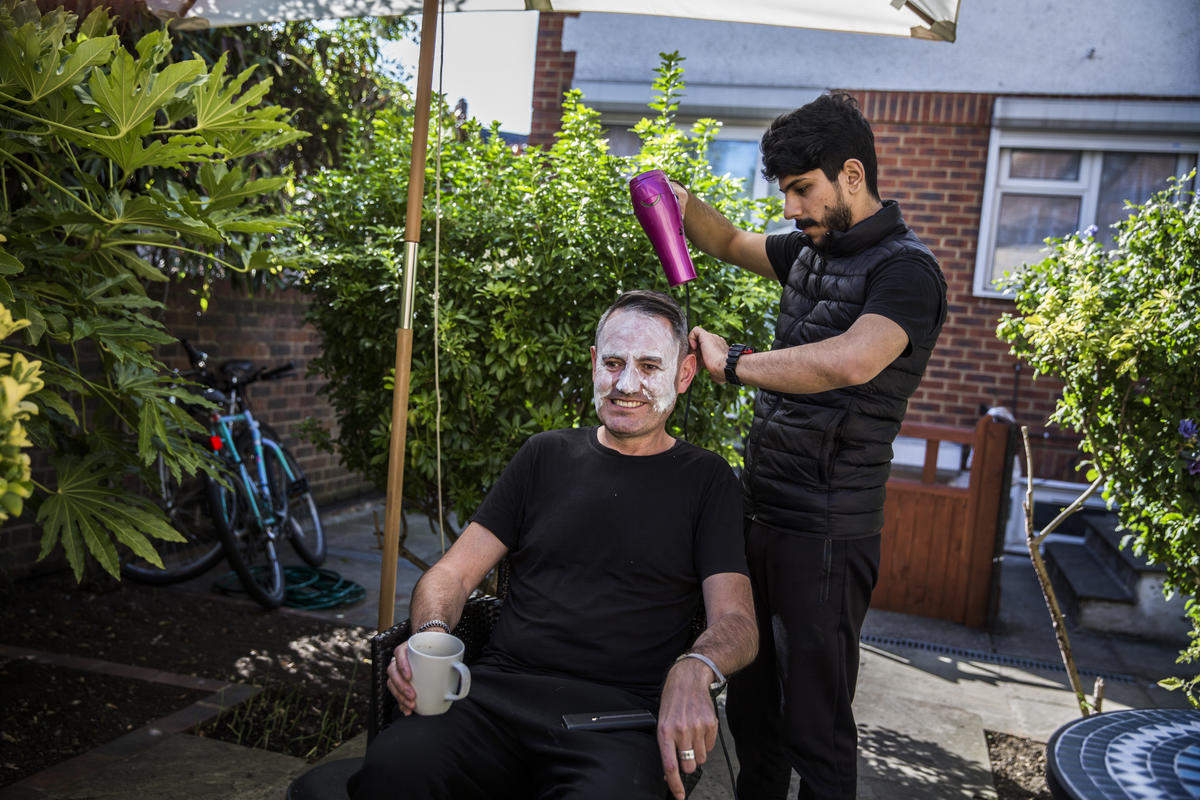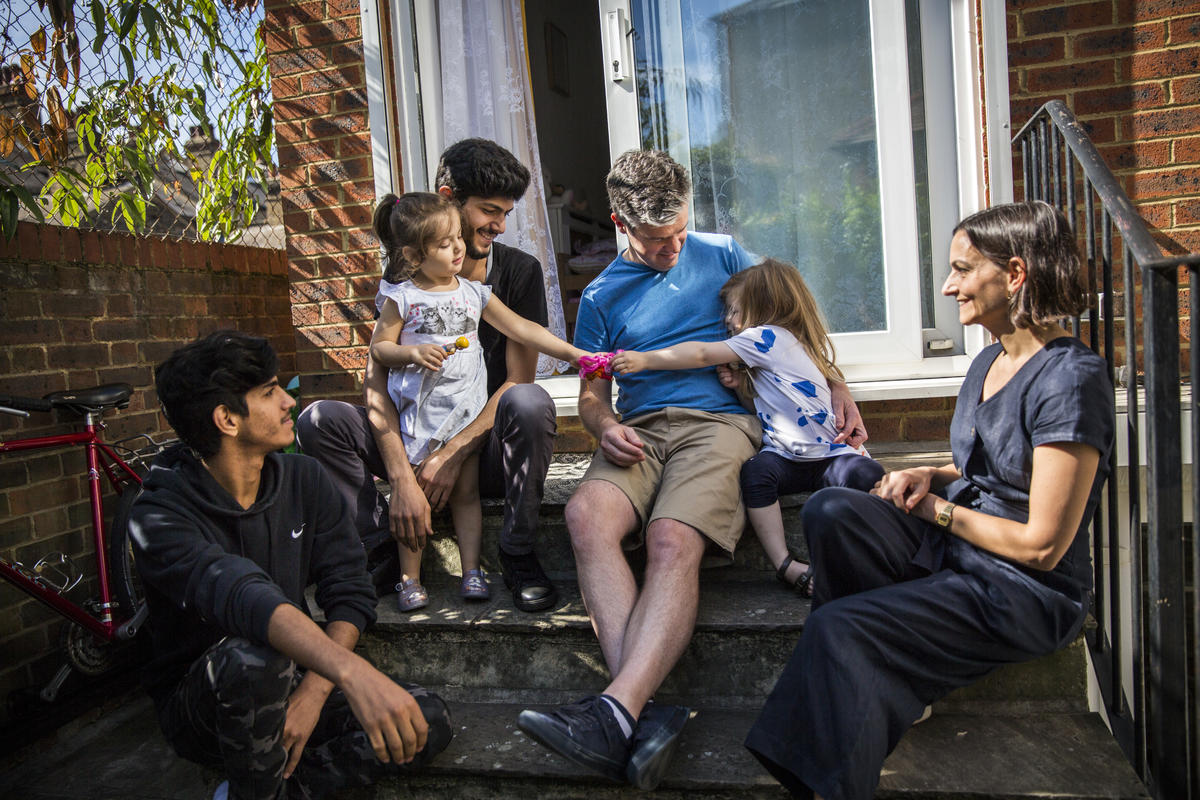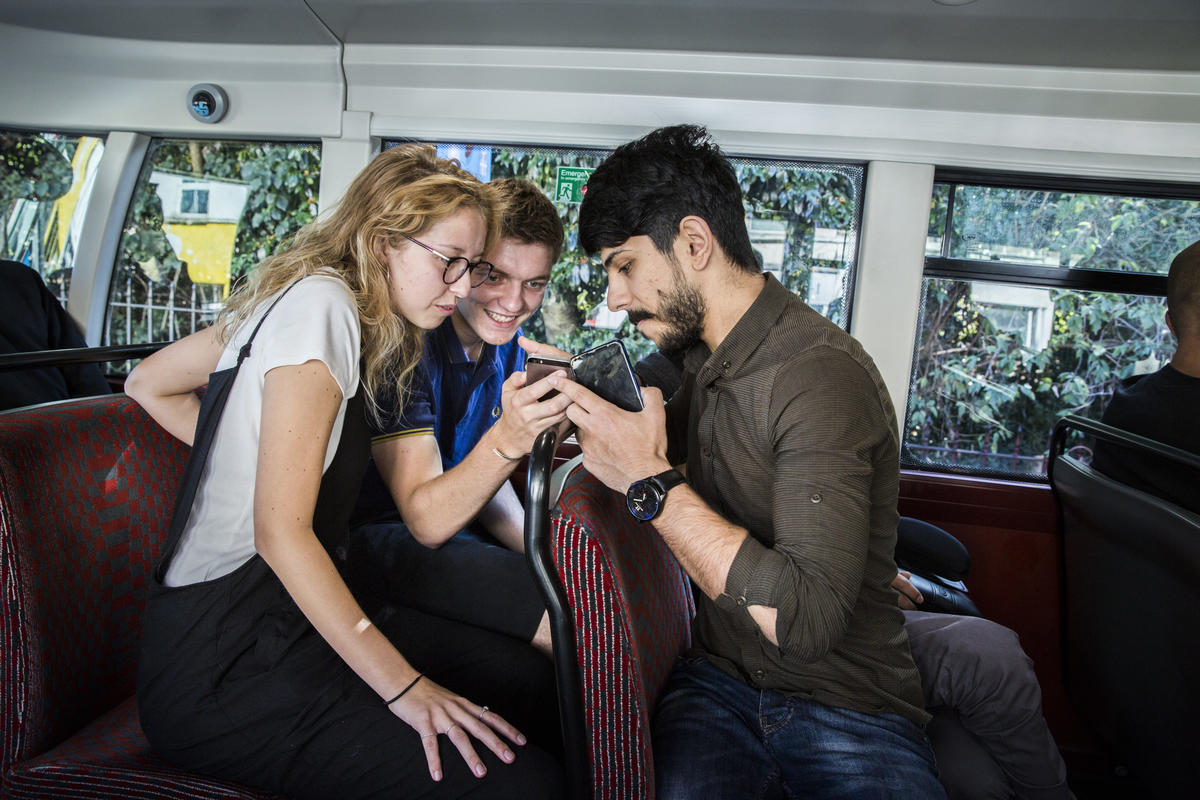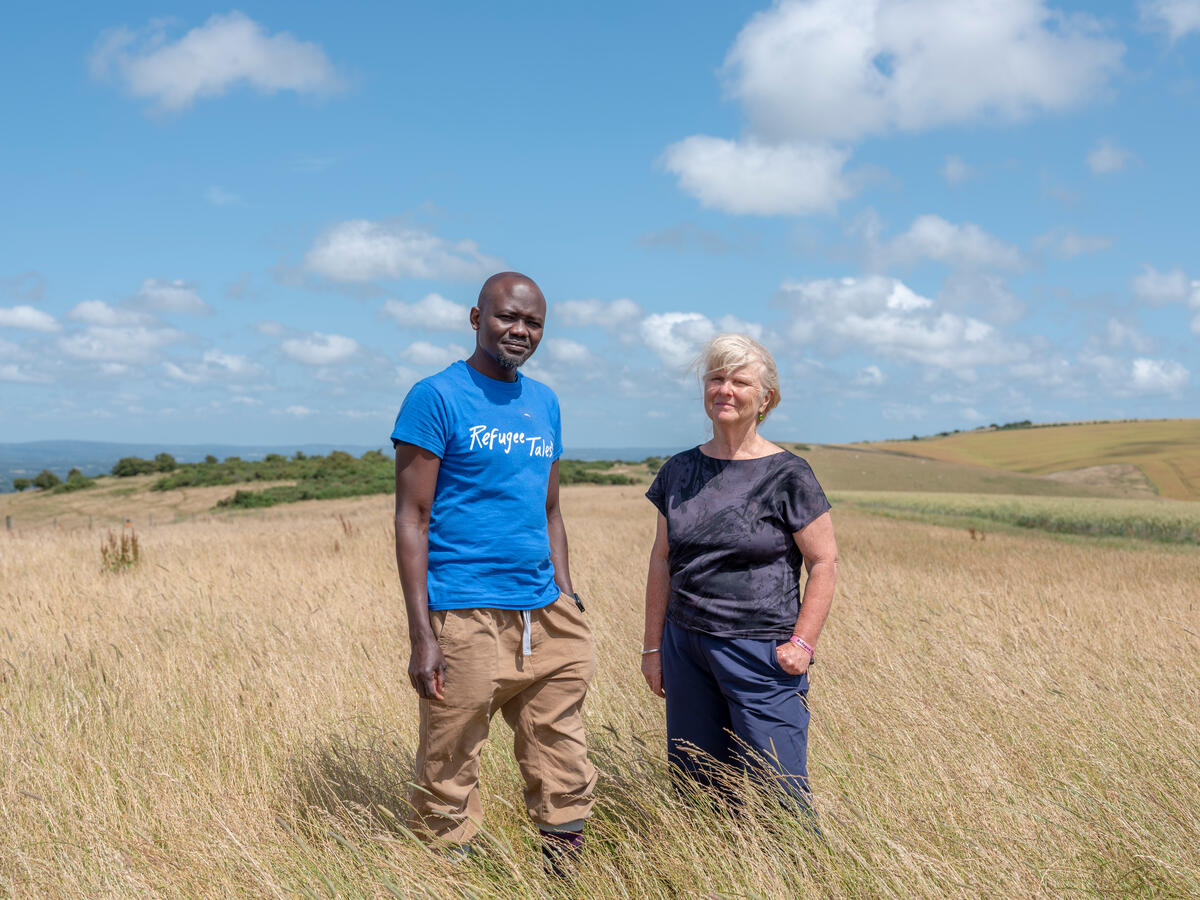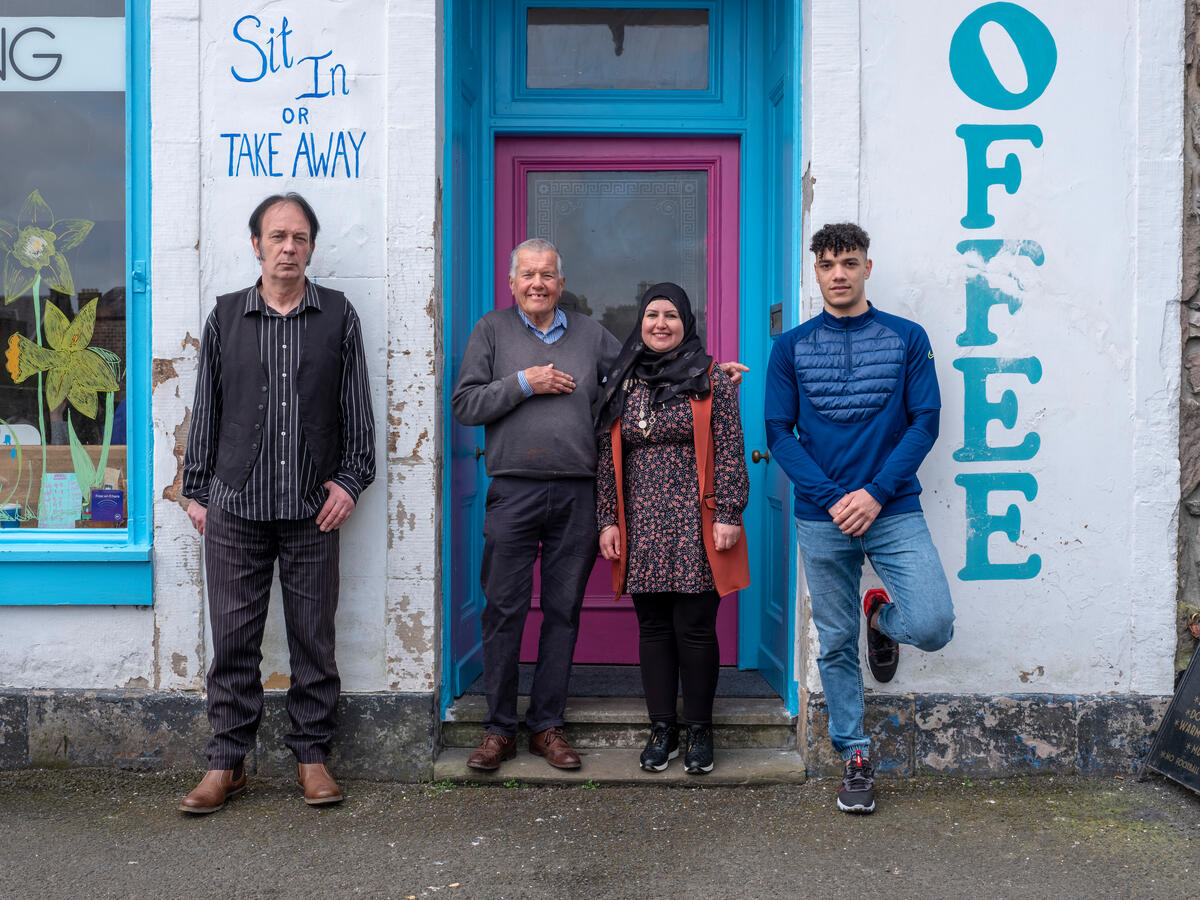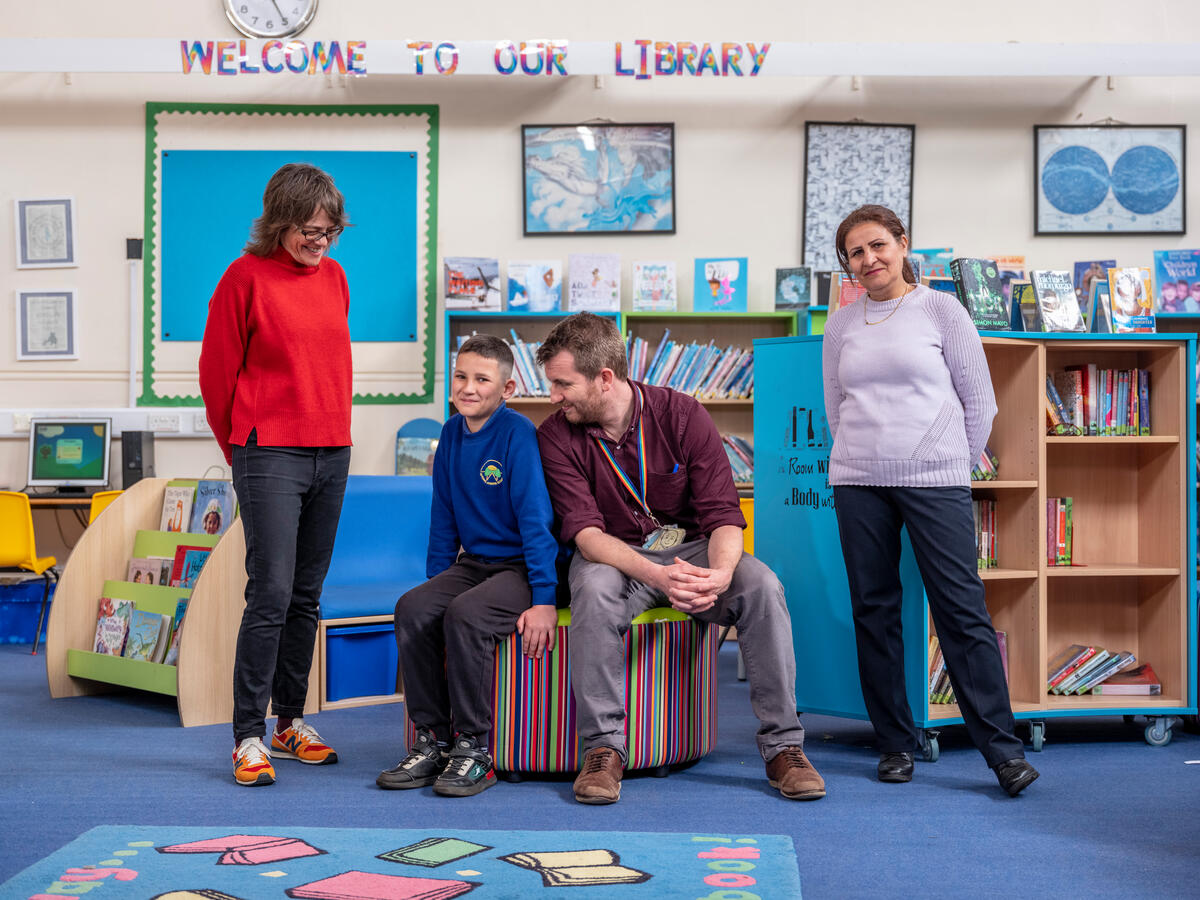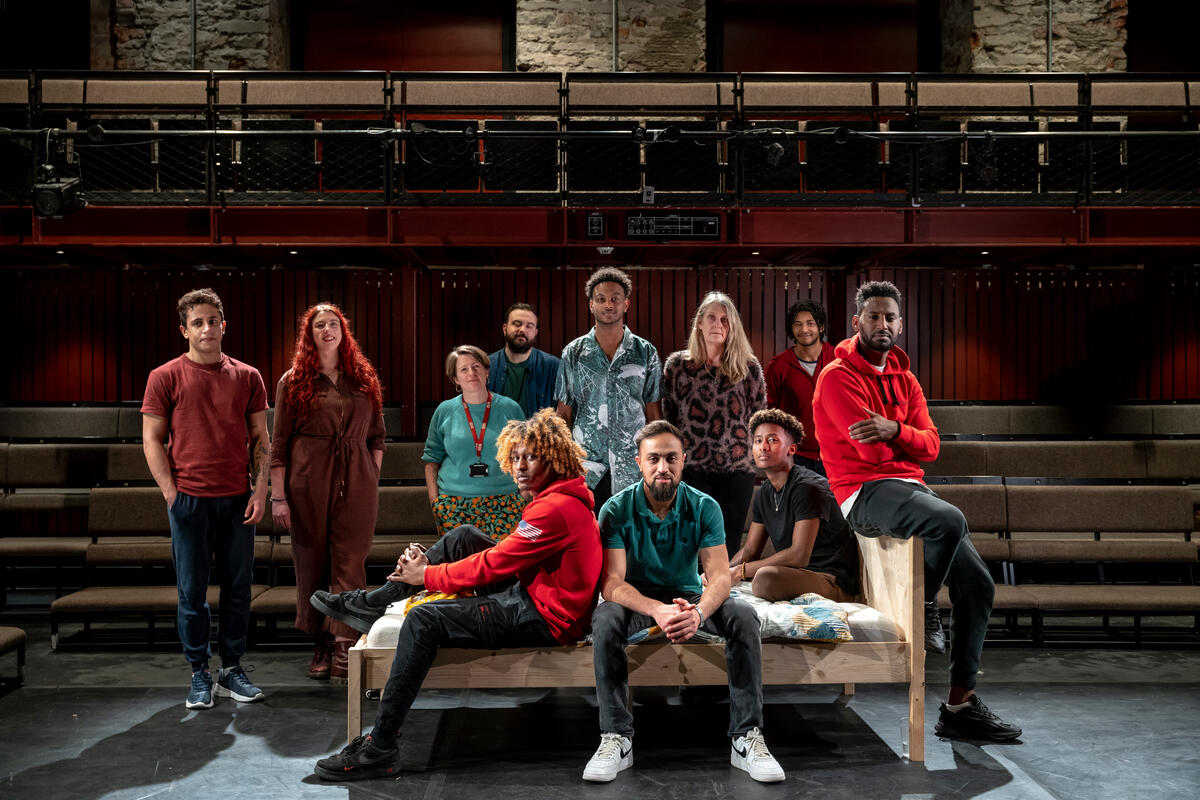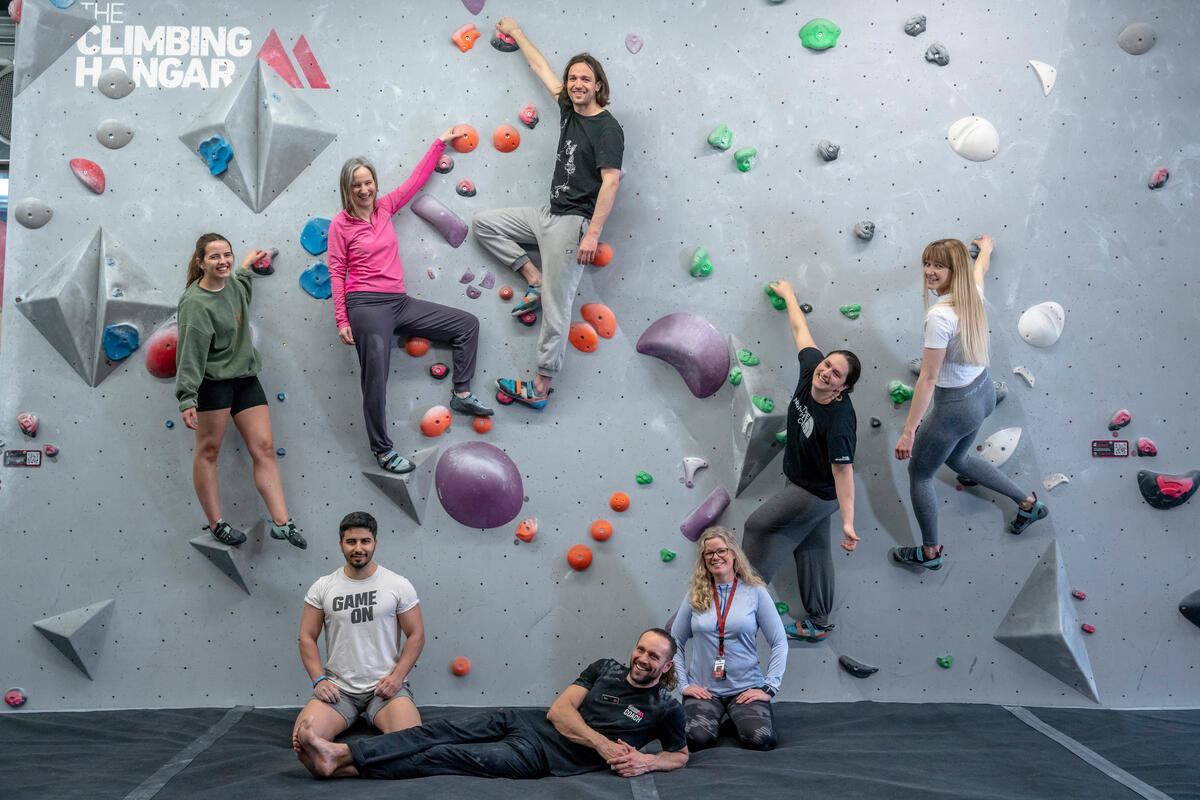'Mini Community' Forms in Peckham to help Refugee Family Rebuild
'Mini Community' Forms in Peckham to help Refugee Family Rebuild
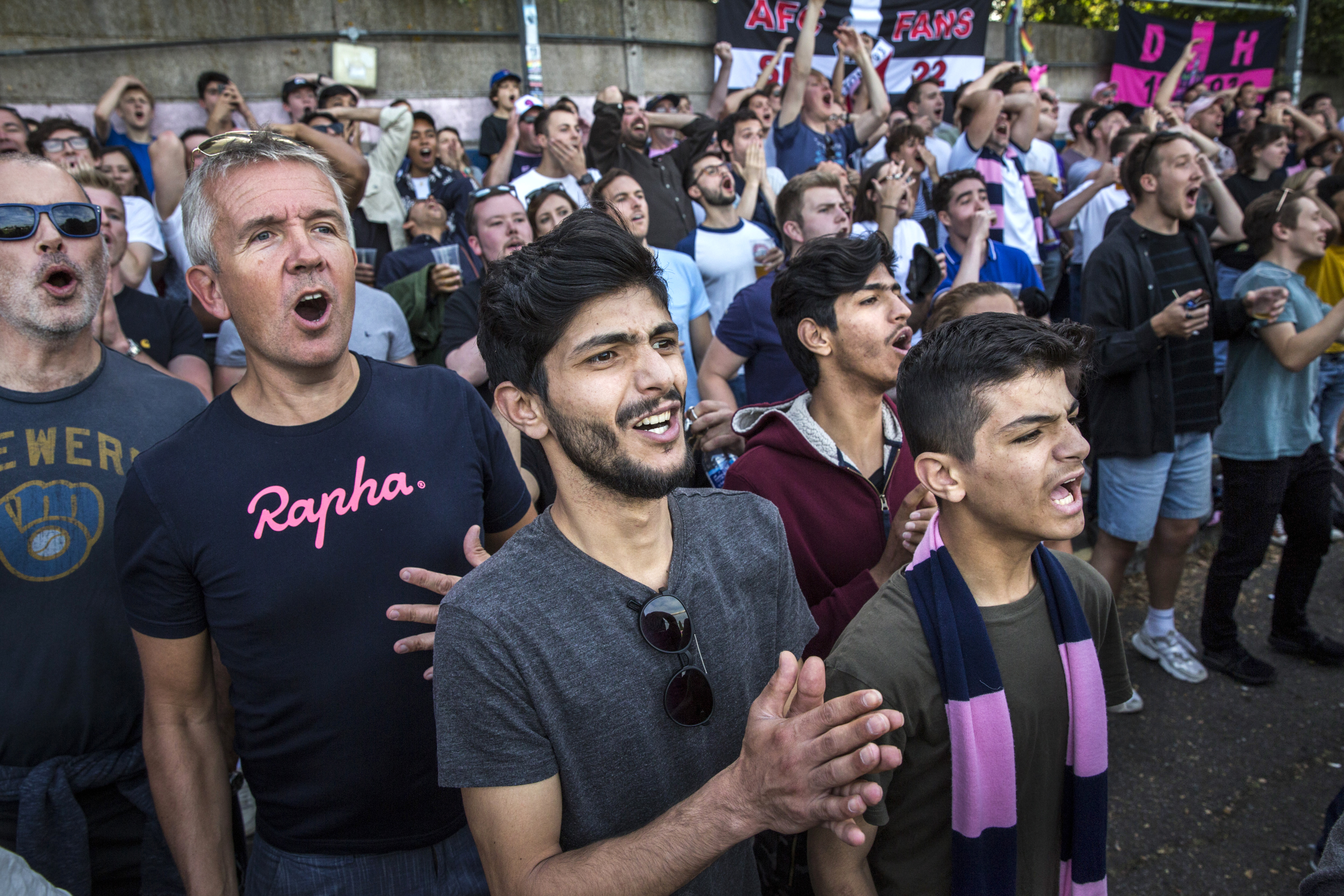
LONDON - Behind the goal at Dulwich Hamlet FC in south London, three Syrian brothers huddled among the club’s hipster supporters, eager to see if their local team could snatch a late winner.
Alas, it wasn’t to be. Instead, the visitors completed a comeback win at the game last year with a stunning 25 yard strike, leaving the boys disappointed as they headed home.
The football-loving Al Shaabin boys and their parents fled Syria soon after the start of the war and are being supported by Peckham Sponsors Refugees, which is among the largest community sponsorship groups in the country in terms its supporter base.
Their focus has been making life easier for the Al Shaabins, who arrived in 2019 and comprise parents Hassan, 48, and Khiloud, 43, as well as four sons: Lutfi, 23; Islam, 20; Zain, 15; and Mohammed, who is 24 and married with a 2-year old daughter. All the boys are of military service age.
Hassan said that when the shooting started and the electricity and water were cut in their hometown of Daraa, Syria, fear kicked in and the family fled to Jordan, just over the border. They ended up stuck there in limbo for eight years.
“There’s no going back. Our house was destroyed, there’s nothing,” said Hassan, speaking at the house provided by a member of the Peckham group for a limited time. “I was so happy to get the call from UNHCR after waiting three or four years. Our children are safe now.”
Some family members remain in the region including Hassan’s chronically ill father. As a result of the years in limbo, the boys had huge gaps in their education. Coming to the UK has also meant that Hassan was able to obtain cancer treatment -- unavailable to him in Jordan -- from the National Health Service. The illness, thankfully, now appears to be in remission.
Peckham Sponsors Refugees was established by Bea Forrester, 19, during her gap year after school. Over 100 residents attended the first meeting, reflecting the spirit of the local population, and the desire to help a family displaced by war. It took just four months to raise more than £20,000 and within a year a house had been identified and redecorated by the group.
“The core group has become a mini community in itself,” said Bea, who is now trying to set up a similar welcome group in the Manchester area. Roles and tasks are divided among teams within the group covering areas like welcome, housing, finance, and local authority liaison. For some questions, experts were available. For others, the group learned as it went along. About 50 people remain involved, with 10 most active.
James Lynch, a volunteer who helps translate Arabic for the family, said: “I’ve been amazed by the effect it’s had within the community. I’ve met people I wouldn’t have come across – everyone with different skills and backgrounds. And that has enhanced the experience.”
He said he sensed that adjusting had been harder for Hassam and Khiloud than the boys. Although he stressed that the whole family had been very impressive. “They take things on headfirst,” he said. “They are an increasingly confident family.”
Community sponsorship started in the UK in 2016. Similar community groups have emerged from rural Devon to Lancashire. It was introduced partly in response to civil society demand but also with the expectation that it would lead to swifter integration for refugees. In Peckham, the results appear encouraging. The scheme is growing and its prospects are bright, given the government’s commitment to make refugees arriving through it additional to those who arrive through regular resettlement channels.
“The generosity of the group has taken us aback,” said Hassan. “Our papers are all done - we had help with the medical side. Everyone treats us like family.”
For Khilood, adjusting to the new culture and way of life was hard at first. “Little by little it’s getting easier,” she said. “Everyone around is very nice and welcoming. The group are wonderful. They really are our friends.”
Both parents have been attending English lessons and, before the COVID-19 lockdown, had been venturing out a little more to explore on buses, to the park. They hope to work in time. Both are keen to find employment, perhaps in catering, since an injury means Hassan might struggle return to his previous vocation as a mechanic.
The boys need no motivating to improve their English. Islam plans to finish English college and has also gained work experience at a local dry cleaners. The others aim to get into the work force as soon as they can. Lutfi, the most confident in English, has been practising his barber skills, and Mohammed is exploring ways to begin deploying his carpentry and decorating experience. Zain attends the local school and is progressing well, making up for years lost in the Middle East.
The Peckham group has been taking the family out as well as helping them to navigate the new world. Unfortunately, due to Coronavirus the group have postponed plans to welcome a second family, but hope to do so as soon as conditions allow.
Likewise, the sponsor group has been unable to meet since March and face to face contact with the Al Shaabins has been limited; though they squeezed in a family-group picnic in the summer. The volunteers also stepped in when the adult family members were not able to go to college for English lessons, with conversations and lessons online.
“Obviously, the restrictions imposed by the lockdown, and since have had a negative impact on the family - slowing progress on things like finding work,” said Tim Finch, a volunteer. Sadly, Hassan's mother passed away in Beirut in September, highlighting the fact that although the Al Shaabins are safe and secure in the UK, they are cut off from close family, which is painful. “But they have remained in good spirits,” he added.
Finch said the question was emerging as to what the group would do when the family is fully independent. “Do we go again? Will it be the same people involved?”
As with so many other projects across society, decisions are being pushed well into 2021.
|
Refugee Family Gives Back by Cooking Meals for Cardigan Care Workers helping fight COVID-19
|
Syria refugee family are sponsored by locals, helping them re-anchor after the pain of flight from war |
|
'Tables have turned' as refugees offer support to sponsors during pandemic |
Bury Locals Sponsor First Refugee Family |
|


